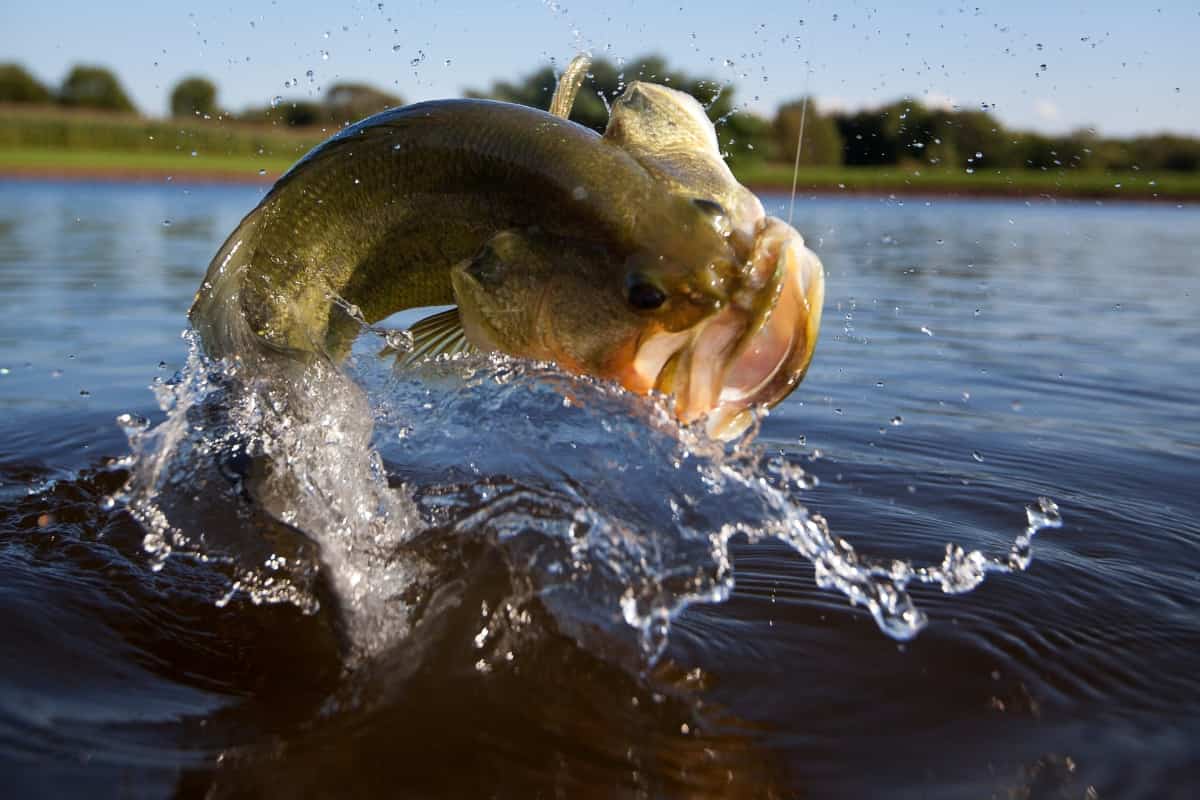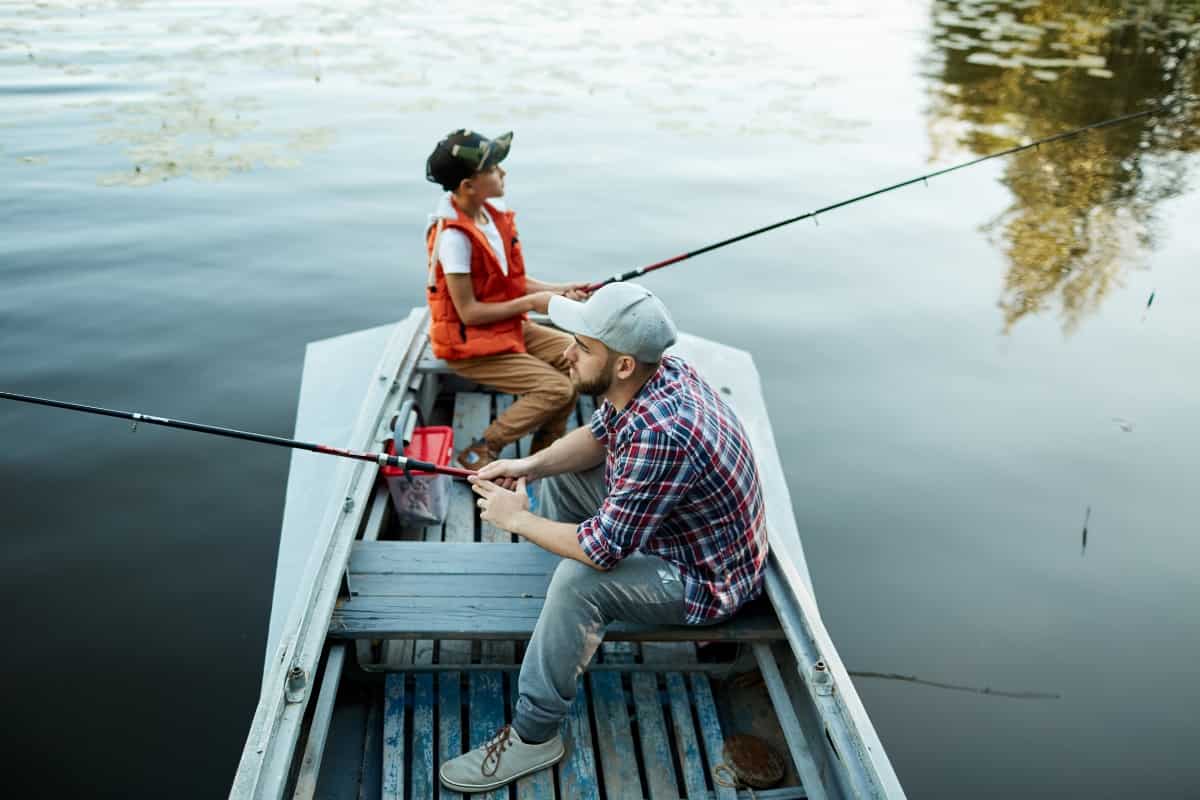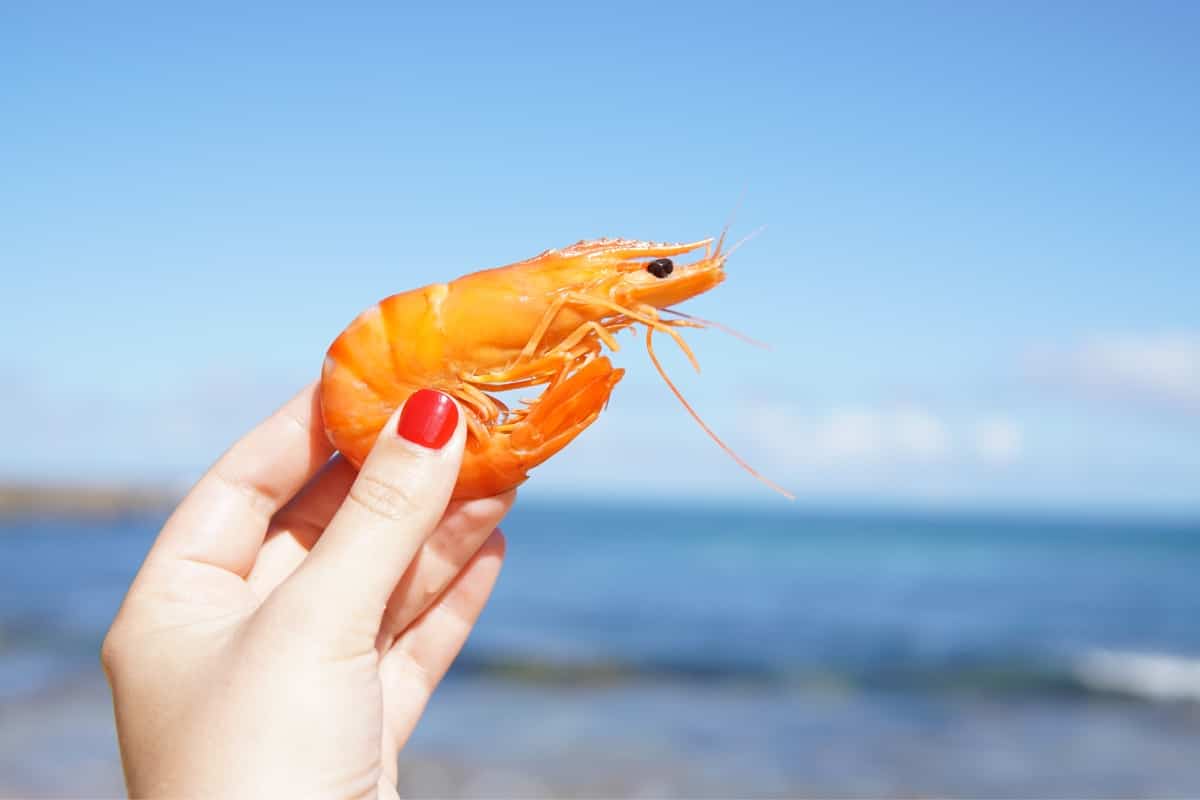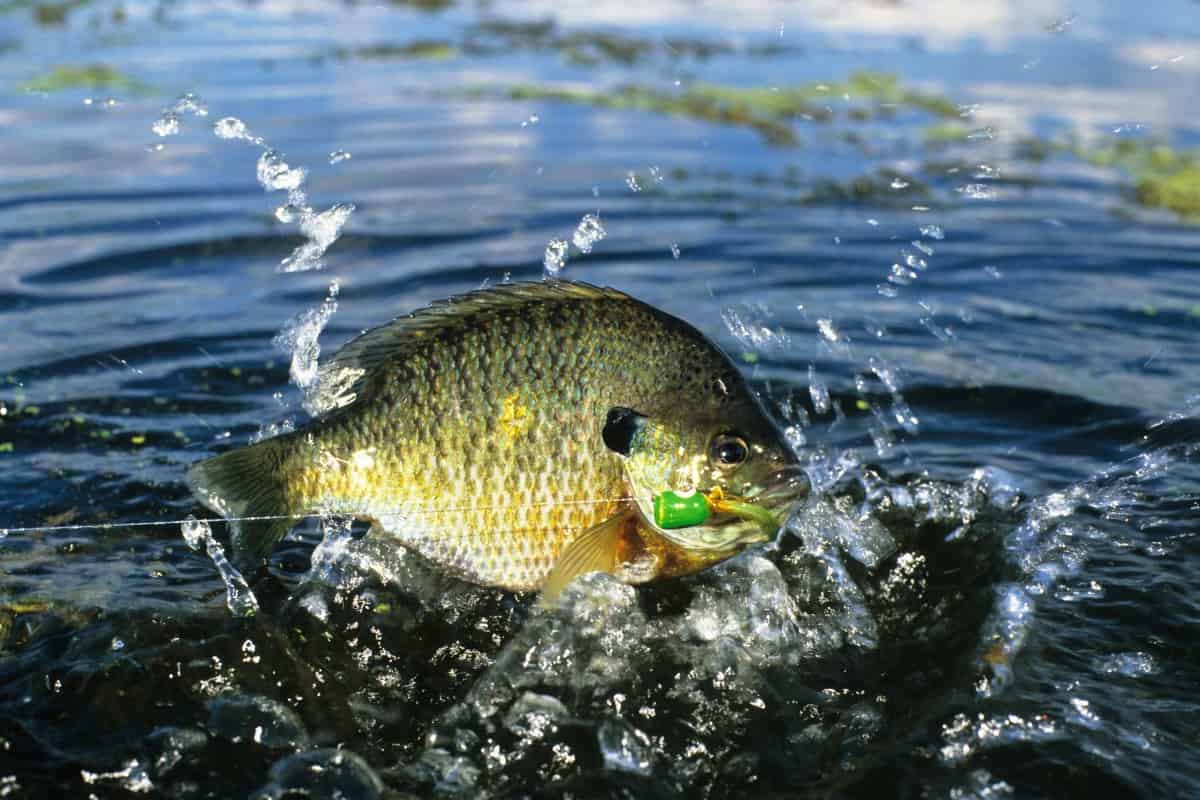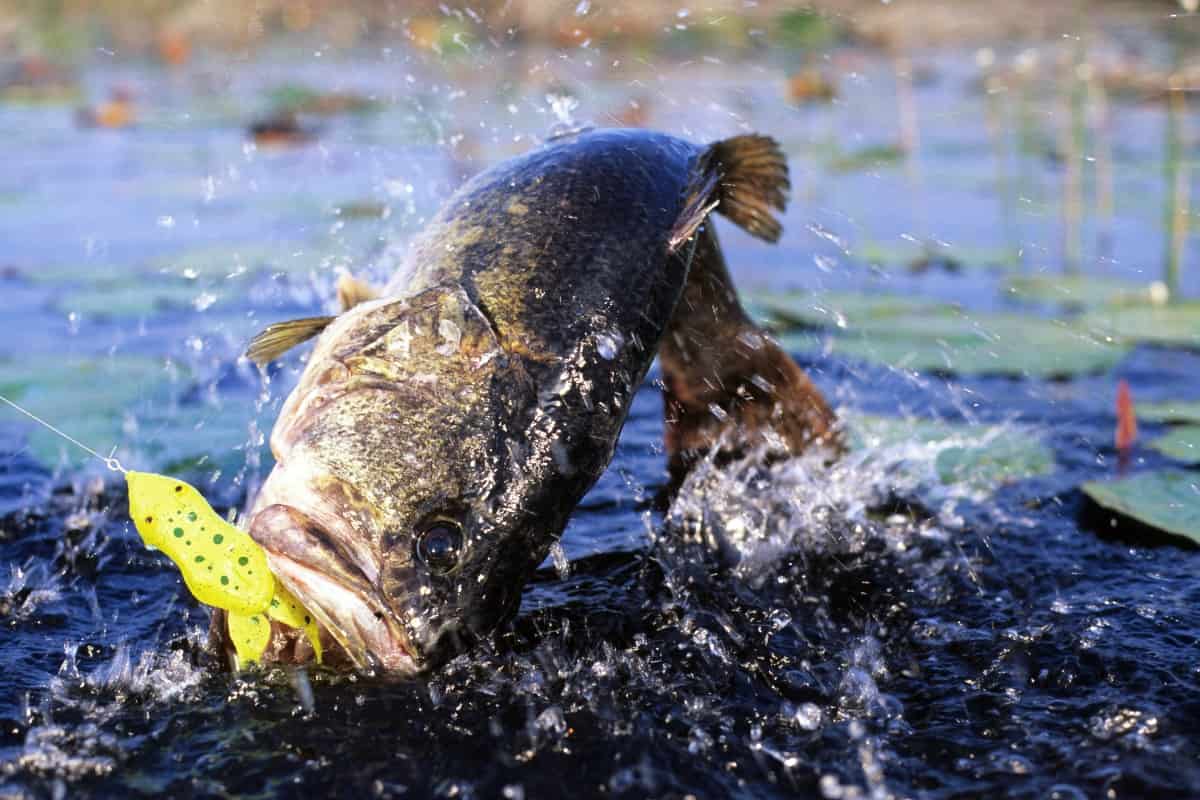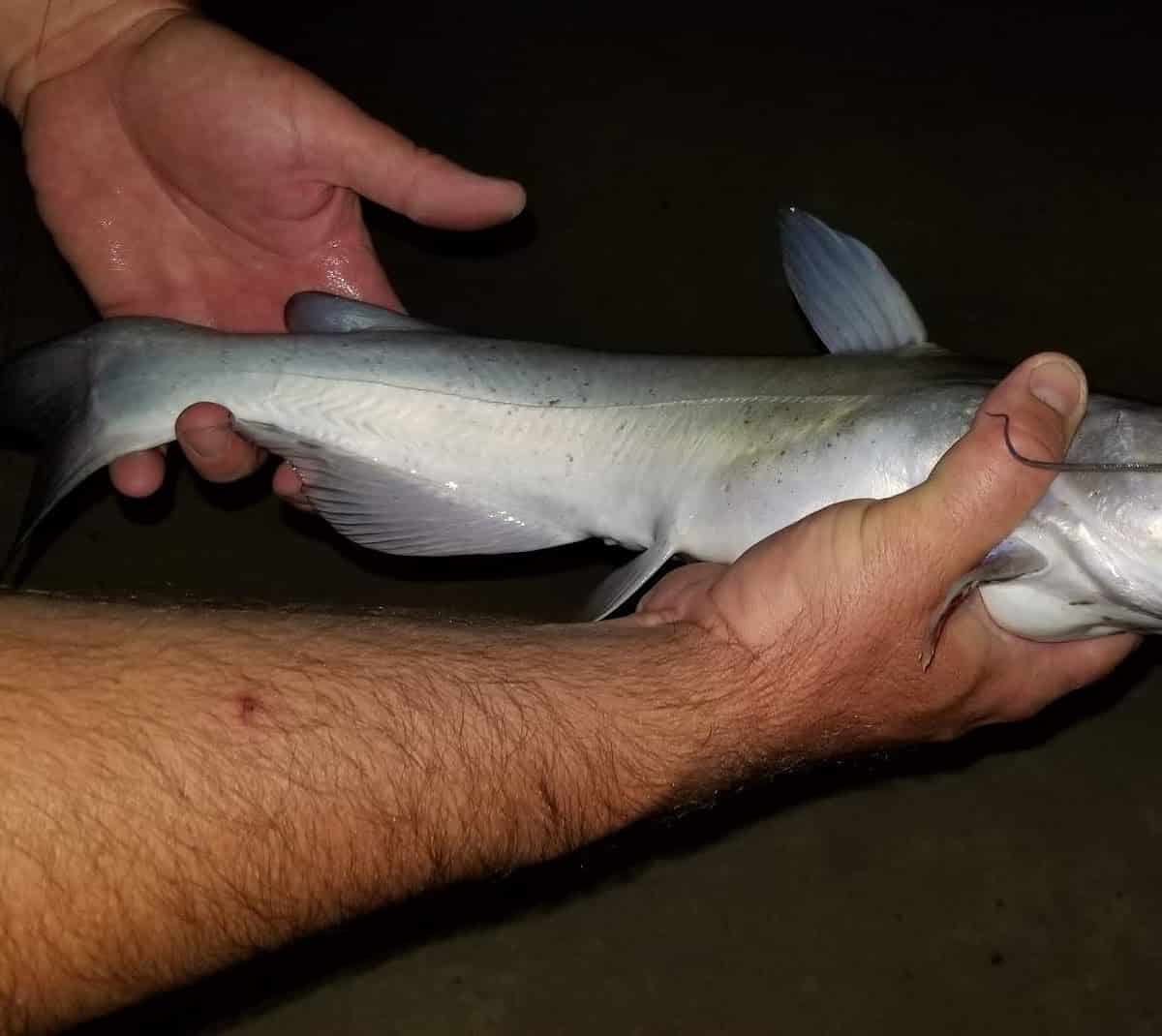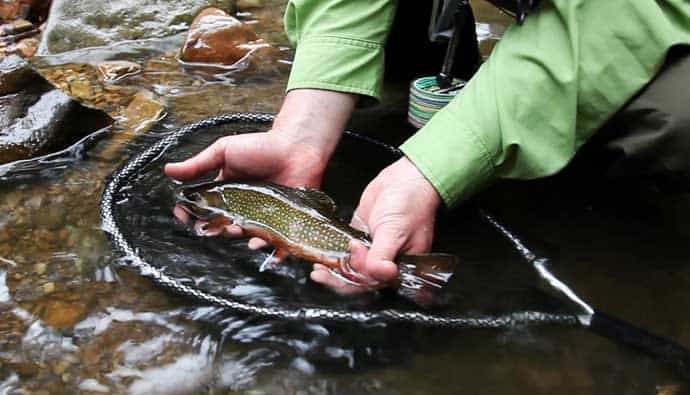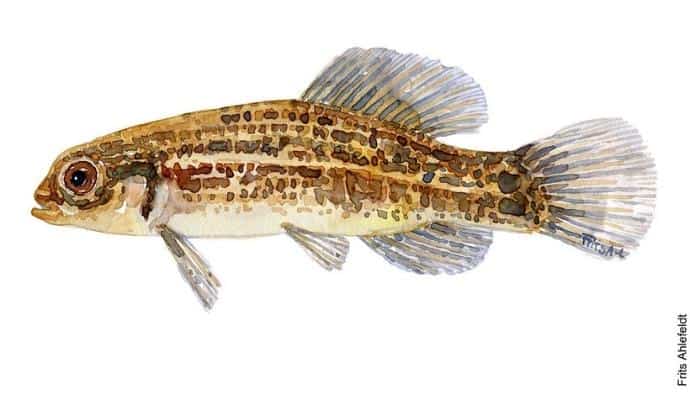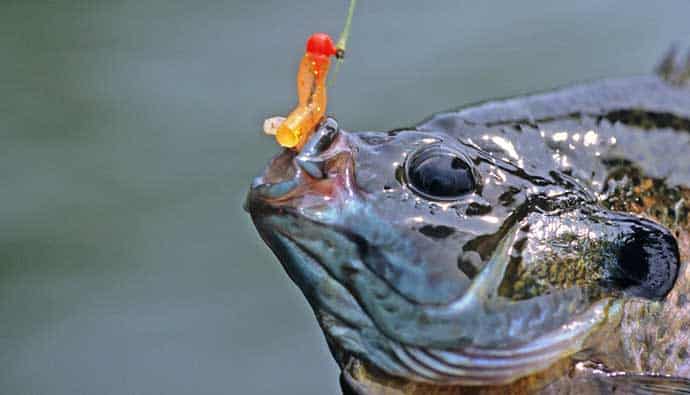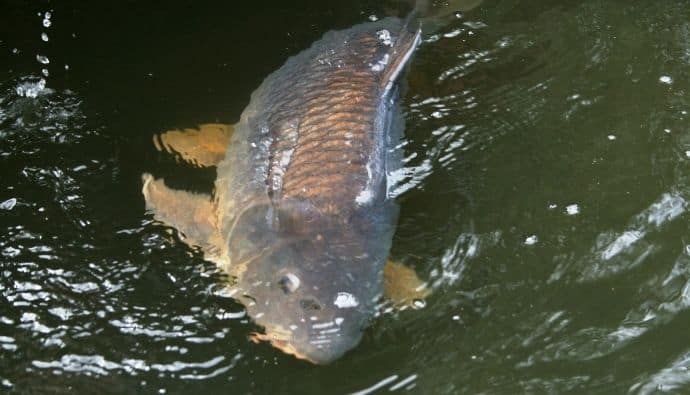Do bass eat shrimp? This question may seem trivial, but for anglers, it’s a crucial piece of the puzzle in understanding bass behavior and improving fishing strategies. In this article, we’ll dive deep into the dietary habits of bass, specifically focusing on their interaction with shrimp, and explore whether these crustaceans form part of their diet.
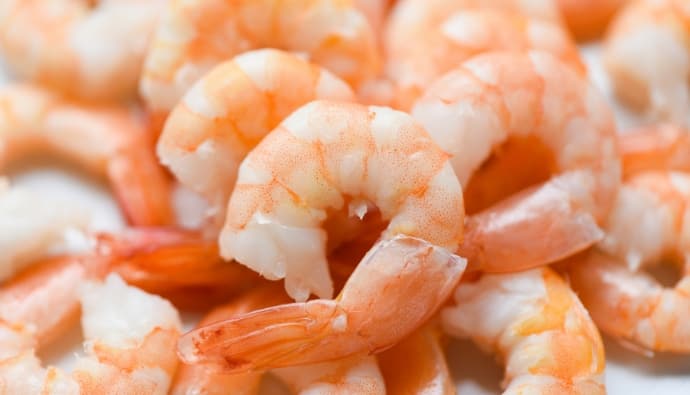
Shrimp have long been a favorite among anglers due to their high protein content and widespread availability. They’re like a universal key that can pique the interest of many different fish species. When it comes to bass, though, the answer is more complicated.
In this post, we’ll go beneath the surface to see if shrimp can be used as bait for bass. Is it the secret weapon your fishing arsenal has been missing, or is it just another bait in the sea?
The Short Answer
Yes, bass eat shrimp. Freshwater and saltwater bass are both opportunistic feeders with a broad diet, and shrimp, which are high in protein, are an enticing meal for them. While shrimp are not the primary food source for bass, particularly in freshwater conditions, they will take advantage of any opportunity to feast on them. Anglers have had success using shrimp as bait in saltwater situations, particularly for largemouth bass and striped bass. However, understanding local bass feeding habits is critical because their diet might vary depending on the availability of food sources in their individual habitat.
Long Answer
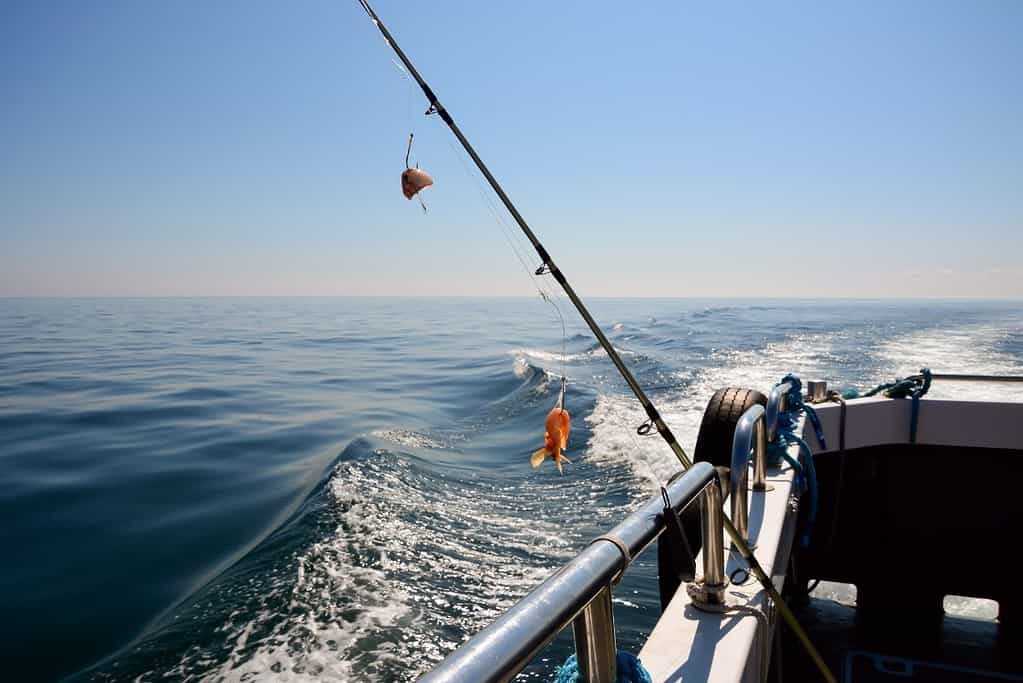
Bass are hungry hunters that like to eat many different types of food. They are not very picky and will eat almost anything that can fit in their mouths. Their diet mainly consists of smaller fish, insects, and even small animals like frogs. Bass will also snack on other underwater creatures, like crawfish, worms, and yes, shrimp!
Largemouth and smallmouth bass love freshwater shrimp.
Both largemouth and smallmouth bass find freshwater shrimp to be a tasty treat. These shrimp live in the same waters as bass, making them an easy and convenient meal. When shrimp are available in their habitat, bass will happily feast on them, adding variety to their diet.
Using Shrimp as Bait
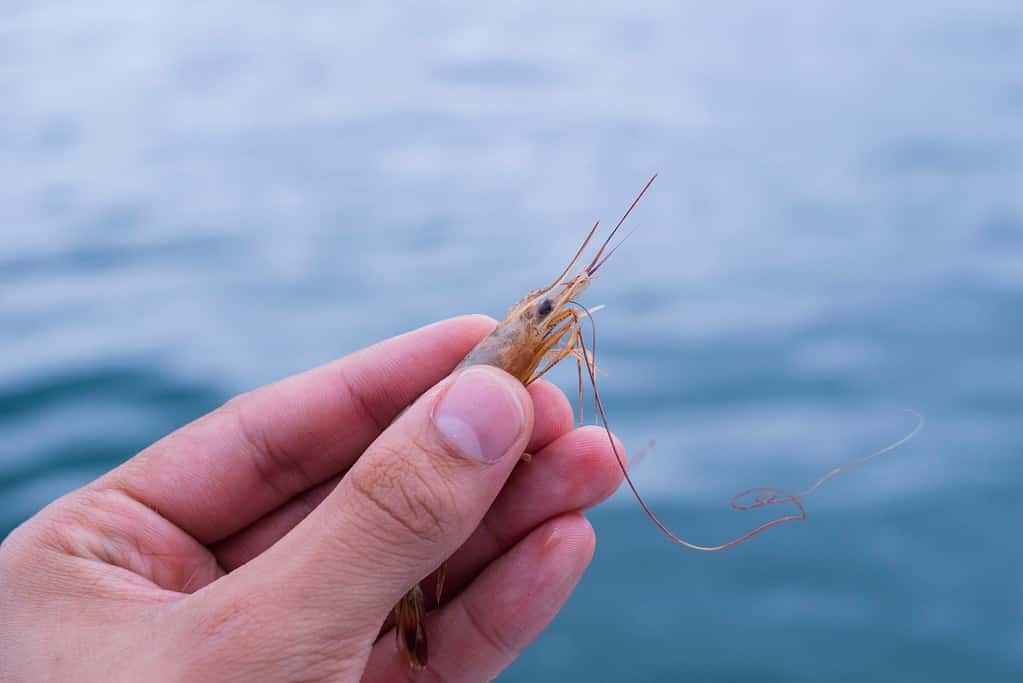
Assume you’re making a sandwich. You wouldn’t just mix everything up, would you? The same is true for prepping shrimp for bait. Here’s a quick three-step process:
- Choosing the Shrimp: Fresh is better when it comes to shrimp. Fresh shrimp smells delicious to bass. You can use either the complete shrimp or just the tail. Remember, the fresher, the better.
- Preparing the Shrimp: Remove the shell from the shrimp if you’re going to use the whole shrimp. It’s like removing the candy wrapper. This will make it easier for the bass to bite.
- Hooking the Shrimp: Thread the hook carefully through the shrimp. Make sure that the shrimp is secured in place. When you cast your line, you wouldn’t want your shrimp falling off.
Bass Fishing: Raw or Cooked Shrimp
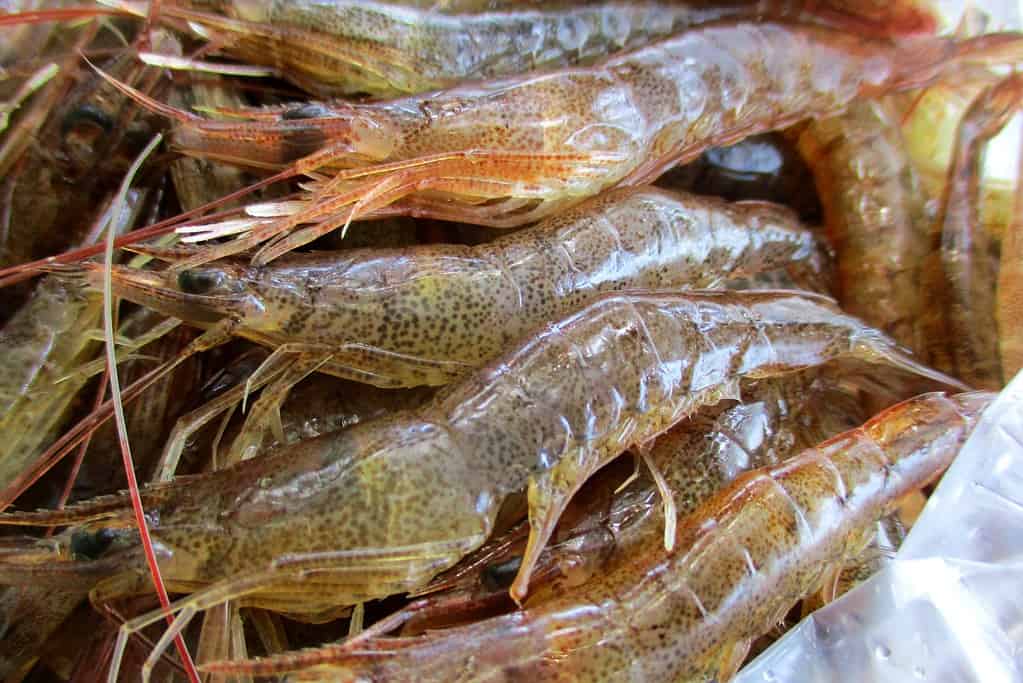
Using shrimp as bait for bass fishing can be very effective, but you might be wondering whether to use raw or cooked shrimp. Let’s explore the pros and cons of each option and what to consider when using them as bass bait.
Pros and Cons of Using Raw Shrimp for Fishing:
Pros:
- Natural Scent: Raw shrimp have a strong, natural scent that can attract bass from a distance, increasing your chances of catching them.
- Texture: The soft texture of raw shrimp makes it easier for bass to bite and hold onto the bait, ensuring a better hookset.
Cons:
- Quick to Spoil: Raw shrimp can go bad fast, especially on hot days. Always make sure they stay cool and use them up fast!
- Delicate Bait: Raw shrimp are soft and tender. They can easily slip off the hook and leave you empty-handed.
Pros and Cons of Using Cooked Shrimp for Fishing:
Pros:
- Durability: Cooked shrimp are tougher than raw shrimp, making them less likely to fall off the hook and better at staying on during multiple casts.
- Longer Shelf Life: Cooked shrimp last longer than raw shrimp, giving you more time to use them as bait.
Cons:
- Less Scent: Cooked shrimp have a weaker scent compared to raw shrimp, making them less effective at attracting bass from a distance.
- Harder Texture: The firmer texture of cooked shrimp can make it more difficult for bass to bite and hold onto the bait, which could decrease your chances of a successful catch.
What to Consider When Using Raw or Cooked Shrimp as Bass Bait:
- Freshness: Choose the freshest shrimp possible, whether raw or cooked, to maximize their effectiveness as bait.
- Storage: Store raw shrimp on ice and cooked shrimp in a cool, dry place to prolong their shelf life.
- Hooking technique: Use an appropriate hooking technique to ensure the shrimp stays on the hook. For example, hook the shrimp through the tail or head, avoiding the softer midsection.
- Presentation: Make sure the shrimp looks natural in the water, mimicking the movement and behavior of live shrimp to attract bass.
Overall, both raw and cooked shrimp can be used as effective bass bait. But you’ll have to do your own trial and error to see which works best for you.
What Other Fish Can You Catch with Shrimp?
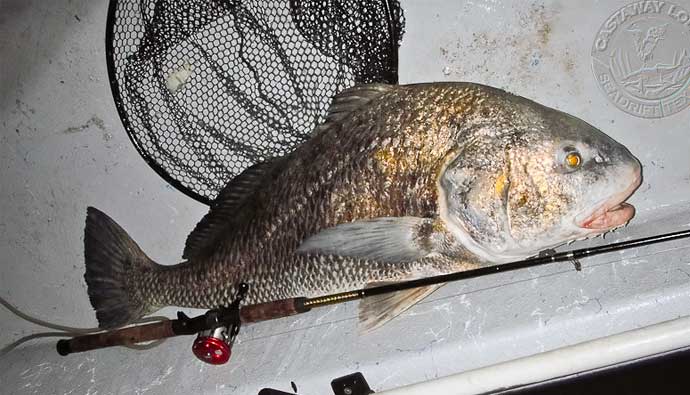
Shrimp are a versatile bait and can attract a variety of fish species. Here, we’ll list down fish that you can catch with shrimp.
- Bass
- Black drum
- Bluegills
- Bonefish
- Bullheads
- Carp
- Catfish
- Chain Pickerel
- Common Carp
- Crappie
- Flounder
- Grouper
- Panfish
- Pompano
- Redfish
- Sea trout
- Snook
- Tarpon
- Trout
- Walleye
- Yellow Perch
What Are Other Baits Good for Bass?
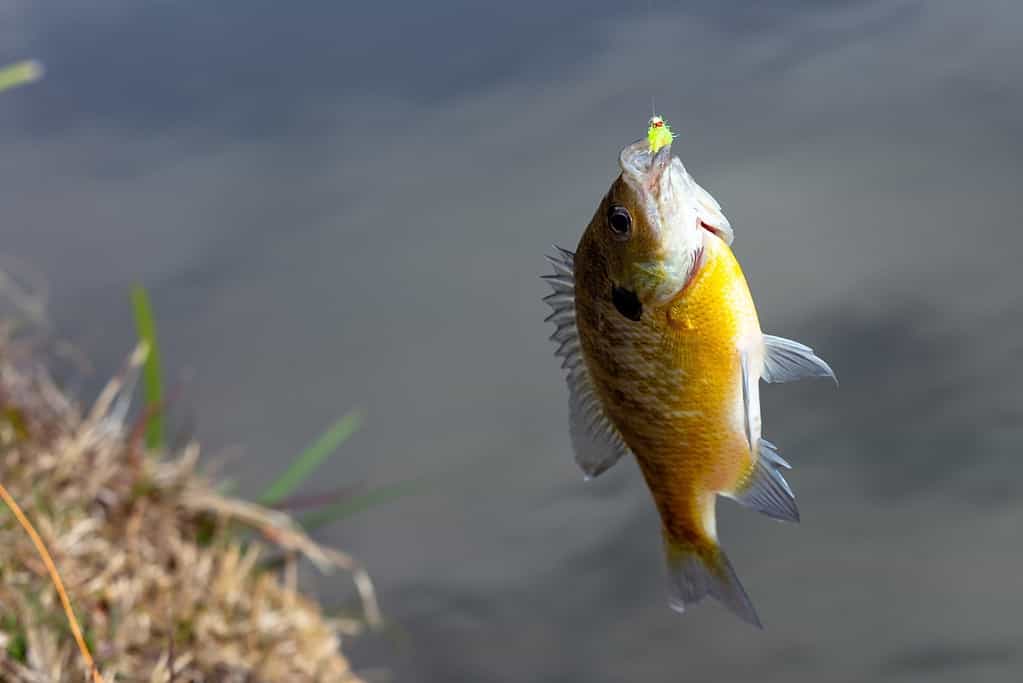
Here are some of the other good bass baits you can try:
- Baitfish
- Bluegills
- Crayfish (Crawfish or Crawdads)
- Frogs and Mice
What to Bring When Fishing For Bass
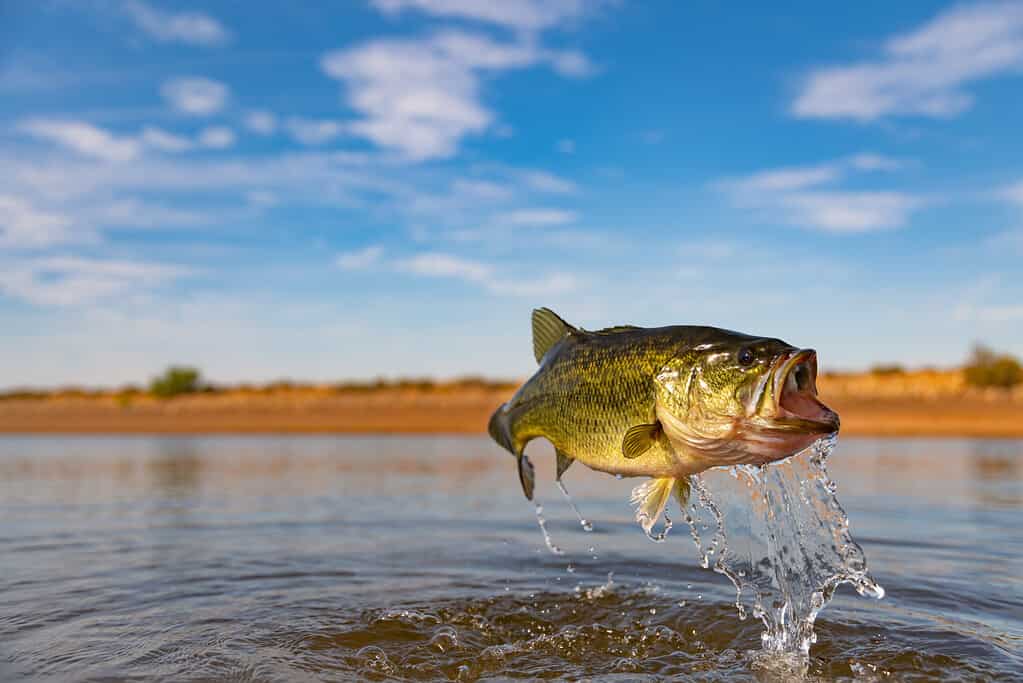
Here’s what you should bring when going bass fishing:
Frequently Asked Questions
Bass are opportunistic feeders, meaning they eat small fish, insects, and crustaceans. Their diet might change depending on their surroundings and the availability of food sources.
You certainly can. While shrimp are not the primary food source for bass, particularly in freshwater conditions, they will take advantage of any opportunity to feast on them.
Because of the scent and texture, fresh shrimp is usually more successful as bait. If fresh shrimp is unavailable, frozen shrimp can be substituted.
You can use the entire shrimp or just the tail. Remove the shell if using whole shrimp. Then, thread the hook through the shrimp gently, ensuring sure it’s secure.
Freshwater and saltwater bass have been observed eating shrimp. However, the feeding habits of bass might vary depending on the species and the area in which they dwell.
Shrimp bait is very successful where shrimp are an integral part of the bass diet. This encompasses saltwater areas as well as some freshwater environments.
The Verdict
We discovered the answer to the question, “Do bass eat shrimp?” during our deep dive into the world of bass and their food patterns. Because both freshwater and saltwater bass are opportunistic feeders, shrimp might be an appealing meal when available.
We’ve also identified how anglers can benefit from this knowledge. Using shrimp as bait can offer up new opportunities, particularly in places where shrimp are abundant. But keep in mind that studying the local feeding patterns of bass is critical because their diet might vary depending on their individual habitat.
So, the next time you go fishing, why not try putting shrimp on your hook? It could be the enticing treat that attracts the trophy bass you’ve been hoping for. Remember that understanding your fish is the first step toward becoming a master fisherman!
Did you find this article helpful? If so, we’d love it if you could share it with your fellow fishing enthusiasts! By sharing, you’re helping others learn more about the fascinating world of bass and their dietary habits.





 Facebook
Facebook YouTube
YouTube